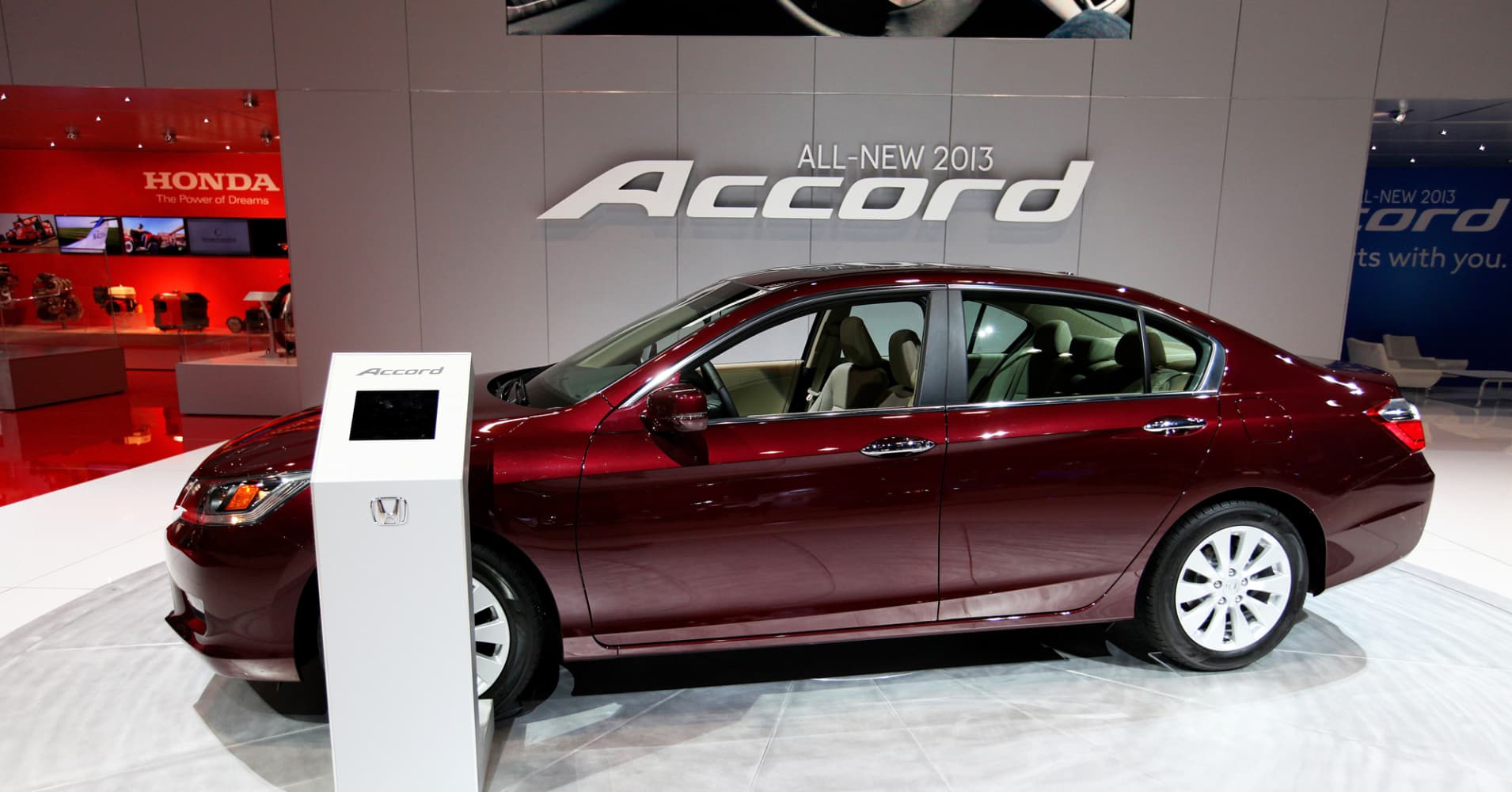
Young people are often said to splurge on indulgences - avocado toast, for example, or daily coffee. When it comes to the cars they drive, however, that doesn't seem to hold true.
Insurance comparison website QuoteWizard, which is owned by LendingTree, dug into its 2018 insurance quote data for drivers aged 22 to 37 "to find the most common vehicles driven by millennials."
The answer: More affordable ones. The No. 1 car among millennials, they found, was the Honda Accord.
The data did not make clear whether young people were buying these cars new or used, or getting them as gifts. Still, it was striking to QuoteWizard that the most popular choices among millennials were "among the cheaper cars on the road."
Of the top 10, eight are small to mid-sized cars, says QuoteWizard, which tend to cost less. The data shows that millennials "tend to drive cheaper sedans" instead of the SUVs and trucks favored by older generations, the site concludes.
Here are the top 10 most popular car brands among millennials and their average MSRPs:
Honda Accord
Average MSRP: $23,720
Nissan Altima
Average MSRP: $23,900
Honda Civic
Average MSRP: $19,450
Toyota Camry
Average MSRP: $23,945
Hyundai Sonata
Average MSRP: $22,500
Chevrolet Impala
Average MSRP: $28,020
Ford F-150
Average MSRP: $28,155
Toyota Corolla
Average MSRP: $18,700
Ford Focus
Average MSRP: $17,950
Jeep Grand Cherokee
Average MSRP: $31,945
Millennials may be spending less on cars because they have less money to spend. While "millennials are making more than ever for the 22 to 37 age group," QuoteWizard cites, "they still earn significantly less than their Gen-X and baby boomer counterparts." Plus, they must often contend with the cost of housing and student loans.
And finances aren't everything. "Earning less money and being buried by debt is a huge factor," says QuoteWizard, but "this doesn't paint the entire picture of why millennials prefer cheaper cars. Urbanization trends show that millennials are happier living in big cities. They're also moving to cities at a higher rate in the last nine years than they did in the 2000s."
Also, "living in urban cities gives millennials more options like public transit [and] ride-sharing services. All these alternative options create less of a need for cars, let alone expensive ones."
Stick with your car for 'as long as you can,' experts say
If you are in the market for a car, experts advise to get only what you can afford and not to buy new.
While it's tempting to splurge, best-selling author of "The Automatic Millionaire" David Bach has said that can be the "single worst financial decision millennials will ever make."
"Nothing you will do in your lifetime, realistically, will waste more money than buying a new car," he told CNBC Make It.
In a blog post, best-selling author of "Women and Money" Suze Orman suggested you fall in love not with an expensive car but with a retirement or savings account, or a home: "Those are assets that, over time, may increase in value. A car will never increase in value. It is a depreciating asset that loses 20 percent of its value in the first year."
If you already have an auto loan, look into some refinancing options, especially if you have good credit. A "prime" or "super prime" score could help you with financing. And if you're still working on your score, stick with your current car for "as long as you can," wrote Orman.
The bottom line is, the less money you spend on a car, the more you can put toward other important priorities. And that's a good step toward building financial security.
By: www.cnbc.com
No comments:
Post a Comment